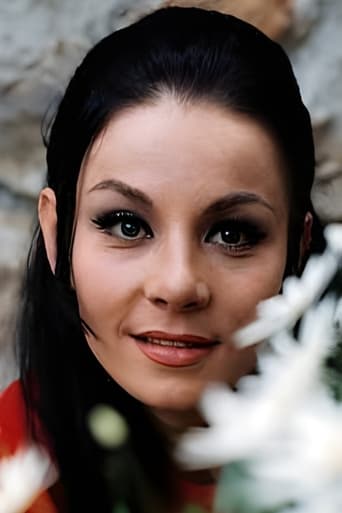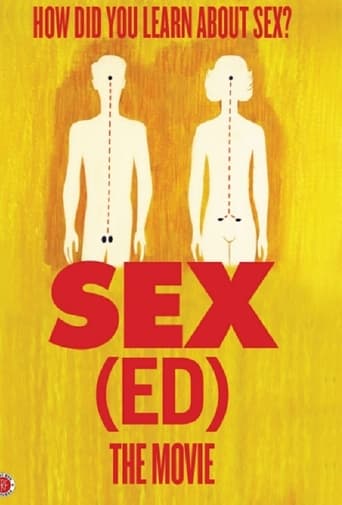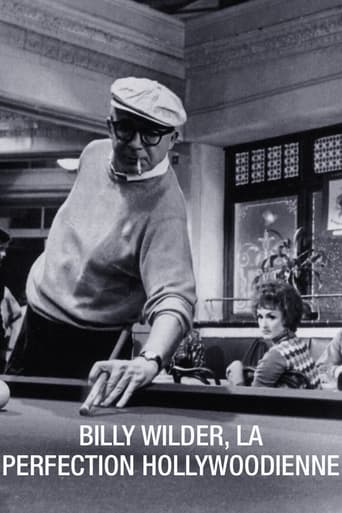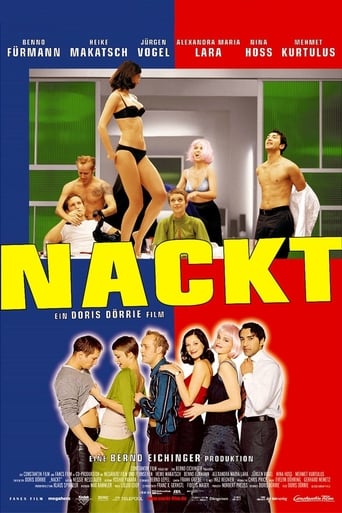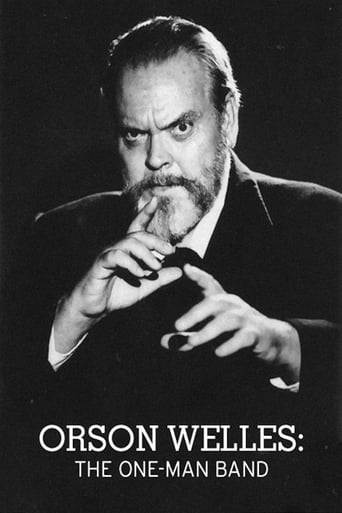
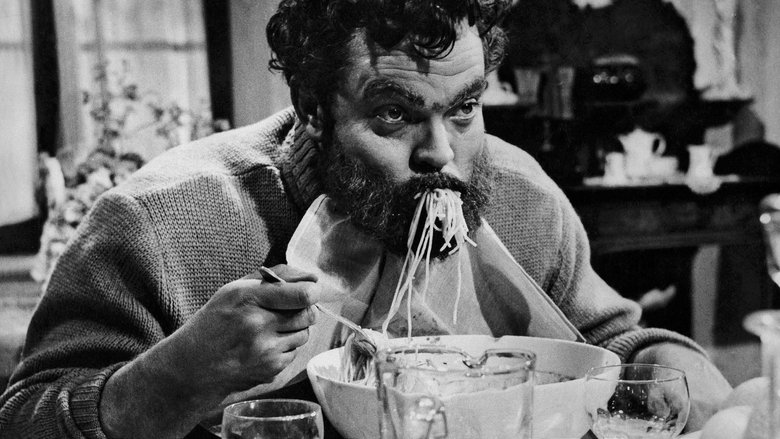
Orson Welles: The One-Man Band (1995)
Orson Welles' archives of unfinished/never released movies and the last years of his life from the perspective of Oja Kodar (life and artistic partner of Orson Welles in his last years).
Watch Trailer
Cast


Similar titles
Reviews
You won't be disappointed!
Waste of time
Very good movie overall, highly recommended. Most of the negative reviews don't have any merit and are all pollitically based. Give this movie a chance at least, and it might give you a different perspective.
It is an exhilarating, distressing, funny and profound film, with one of the more memorable film scores in years,
This is some clips of unfinished Orson Welles films along with some interview footage of him and his ex lover and some pretentious filler. This includes a fascinating scene from The Other Side of the Wind, some interesting bits from The Dreamers and The Deep, some Moby Dick monologues and some comedic nonsense that is like some weird old guy's home movies.Oja Kodar is engaging as she talks about her time with Orson, but she's apparently also been a major impediment to the finishing of The Other Side of the Wind, and one suspects that a lot of the intent of this film is to put Oja in front of the public, since she Welles was never able to make a star of her. (On the bright side, I think Netflix has managed to get the project of finishing the film going again; hopefully they'll finally do it!)While there are some terrific moments, the presentation is lacking and some of Welles' material is shockingly amateurish.
Orson Welles' archives of unfinished/never released movies and the last years of his life from the perspective of Oja Kodar (life and artistic partner Of Orson Welles in his last years).What is Orson Welles? Is he a visionary, an artist, and a constant creator? Yes. This is a man who was only 26 when "Citizen Kane" was made, and continued to make brilliant work for decades. Perhaps some day we will see more of it (rumors abound that "lost films" will turn up).Why does this film have Muppets? Because it should. And why is the narration in German? This is a bit of a shortcoming. Because so much of it is in English, having the voiceovers in German does not seem to make a lot of sense. At the very least, it could have multiple sound options. (Subtitles are preferable to dubbing, but this would not even be dubbing because the narrator is never on screen.)
Orson Welles: The One-Man Band (1995) *** (out of 4) This is an interesting documentary from Oja Kodar who served as Orson Welles life partner. This 60-minute documentary takes clips from various unfinished films by Welles and presents them as parts of his work that simply for one reason or another never got finished. Throughout all the clips we get some stuff from Welles giving interviews where he talks about his craft. One such clip comes from his AFI Lifetime Achievement award and another comes from a Q&A he was giving and he gives an interesting answer about his unfinished films including DON QUIXOTE. We get clips or notes to films such as THE OTHER SIDE OF THE WIND, MOBY DICK, THE DEEP, THE MERCHANT OF VENICE, ONE-MAN BAND, The Orson Welles Show, THE DREAMERS and a bizarre extended trailer for F FOR FAKE. Needless to say, the ones who will enjoy this the most are fans of Welles because they'll get a chance to see all of this footage, which went pretty much unused for years. I'm sure the success of IT'S ALL TRUE helped get some of this out there. While there's nothing ground-breaking in terms to the quality of the film, I think it remains entertaining as long as you don't mind watching this footage of Welles. I must admit that I thought it was rather sad watching this thing and seeing such a great artist doing stuff that would never come together and eventually sit on a shelf for decades. Kodar is shown on-camera as she shows off some items of Welles as well as some of the paintings that he did. Of course, a more detailed documentary about the life of Welles is certainly something that we need but until then this here is a nice introduction to the work he never completed.
Orson Welles: The One-Man Band, which is one of many excellent extras on the Criterion Collection DVD edition of Welles' film F for Fake (Vérités et mensonges, 1974), is a 90-minute documentary, put together (co-directed) by Welles partner/companion Oja Kodar and filmmaker Vassili Silovic. It examines Welles' career primarily via a focus on his unfinished projects, and is of great interest to Welles fans for presenting (sometimes extended) clips of those unrealized films. Although this documentary is put together in the style of F for Fake, it's not nearly as successful artistically, which probably underscores what a genius Welles could be when he was in charge.The unfinished or lost works prominently featured include Moby Dick, The Merchant of Venice (1969), The Other Side of the Wind (1972), and a kind of surrealistic "biopic" that Welles was working on, set in London, called One Man Band. There is also a fascinating question and answer session with Welles filmed on a college campus, bits of a television show with him talking to various Muppets (it appears to be more of a talk show than something taken from The Muppet Show), a few instances of Welles performing magic tricks, and quite a few scenes filmed specifically for this documentary. The latter tend to have the best cinematography. The clips from unfinished films that Welles shot or supervised tend to not be properly processed. They need color correction; they need to be cleaned up, and so on.Just seeing the Welles film clips out of context like this tends to undermine their potential impact for me. For example, the surrealistic Merchant of Venice scenes and the bizarre sex scene from The Other Side of the Wind are both fascinating, but with improperly processed prints and with just snippets that should have arrived in a full film in the same vein, neither quite work, and in the context of this documentary, they tend to slow it down too much. The bits of Welles reading sections from Moby Dick at the camera in close-up and the brief scenes from an unrealized film called the Dreamers do not work at all for me. The snippets of One-Man Band are primarily interesting in that they amount to Welles doing his best Benny Hill impersonation.Although I was drawn to the documentary by seeing the unfinished clips, what ended up being the most significant aspect of The One Man Band for me was the exploration of Welles' difficult relationship with the film industry, his occasional bad luck (such as losing or having the negatives of Merchant of Venice stolen), his efforts to fund his projects, which tended to always surmount what he could arrange financing for, and his public comments, which mostly downplayed the unfinished works, and in which he presents himself both as a carefree, somewhat modest "artiste" and a deep pessimist. In some of these respects, Welles had a career similarity to other maverick outsider artists, such as Frank Zappa.Relatively simple shots, such as driving by the outside of the big Hollywood studios and the Director's Guild of America, have significant symbolic impact in this context, as we're seeing the "closed door" to Welles' creative ideals. There are aspects of Welles that I would have liked to see explored more in depth in this documentary, such as his visual artworks (both the works intended as ends in themselves and those intended as tools for film-making), but this is a fairly successful, if somewhat sad and disheartening look at a very unique talent.


